-
Leave no-one behind: Campaign to address digital exclusionHave you or someone you know ever tried to fill out a government form online? How about doing that on your phone? And uploading documents to it? What if your internet connection was limited? Or English wasn’t your first language? Or you were vision impaired? Or didn't have a credit card? What if you needed help to understand, and what you really wanted was someone to talk to? Consider the frustration this causes you and what it looks like when you’re made further vulnerable as you stare into the digital divide. The digital-only or digital-first approach being embraced by government agencies is excluding some of Aotearoa’s most vulnerable people and communities. This is unacceptable. We want to see people’s needs put at the centre of public services and are asking our representatives in Parliament, to pledge to ensuring this is the case. Interacting with government services is often about accessing rights and entitlements and it’s important that there aren’t any barriers in the way. Digital services are not the right response for all people or in all circumstances. There needs to be genuine choice for people about how they can interact - whether online, face-to-face, through others or by phone. It is critical that as a country we don’t allow the digital transformation of public services to further entrench disadvantage and vulnerability. We have written to politicians asking them to commit to addressing digital exclusion so that no-one is left behind or left out because they can't or don't wish to engage online. As part of this campaign, we are also seeking funding to cover the transfer of costs that has resulted from government agencies closing up shop in communities and sending people to get help from CABs, including to get paper copies of forms. Join us in this call to address digital exclusion so that we leave no-one behind! This campaign builds on the findings and recommendations of our report, ‘Face to Face with digital exclusion’. You can read the full report here: https://www.cab.org.nz/what-we-do/social-justice/digital-exclusion/8,046 of 9,000 SignaturesCreated by Citizens Advice Bureau New Zealand Ngā Pou Whakawhirinaki o Aotearoa

-
Recognise the rights of mokoMoko, a divine treasure etched into the skin to enhance the cultural identity of Māori in New Zealand. Moko, beautiful markings reflecting the whakapapa (geneology), history and mana of the wearer. Moko, an important traditional practice used by Maori since time immemorial. Please support this petition to include 'moko','moko kauae','mataora', 'ta moko' as prohibited grounds for discrimination. History tells us our tipuna enjoyed freedom of movement as moko wearers, a legacy we should able be able to carry on as well.8,571 of 9,000 SignaturesCreated by Rangimiria Ihakara
-
Save Auckland's Marine Reserves and WaterwaysYour support is urgently required as the Auckland Council will soon make decisions to cut funding for programmes that are designed to improve sediment and contaminant control in our waterways. A Sediment Programme is vital for our marine reserves and coastal waterways, however, the Chief Planning Office advises the planned Sediment Programme may be reduced due to a lack of budget. The Auckland Council Emergency Budget proposes reducing the programmes of the Healthy Waters Department and the Chief Planning Office. The budget cut will jeopardise Council’s ability to meet and support its obligations required by the National Policy Statement for Freshwater Management (NPSFM), as it will negatively affect the Council’s ability to manage how much sediment and pollution is released into the Hauraki Gulf. This will affect the programme’s next step to improve sediment controls on large-scale greenfield developments and improve transparency between compliance performance and iwi / community expectations of water quality. This will have devastating consequences on the health of the Long Bay Okura Marine Reserve and other important estuaries and waterways around the Auckland Region, that are affected by the sediment from coastal development. Your support is urgently required as the Auckland Council will soon make decisions to cut funding for programmes that are designed to improve sediment and contaminant control in our waterways. The future of our waterways depends on action, please sign this petition to show your support. State of the Gulf: Auckland Council report finds estuaries choking in sediment, shellfish dying, June 2020 https://www.nzherald.co.nz/nz/news/article.cfm?c_id=1&objectid=12342221&fbclid=IwAR3yYpTDHB8QKcaqk2G2vrtEDDtvDGb3sBBYVlWEEXNp9szNuYBk05DF_lg567 of 600 SignaturesCreated by Teresa Moore
-
School Strike 4 Climate NZ & 4 Tha Kulture Open Letter Calls For Covid Green ResponseAs the youth of Aotearoa, it is important that the decision and projects that we put forward work around securing our generation a safe future. The children of New Zealand will be paying off the debt collected from the stimulus project. We demand that you, as the leaders of today, ensure us a safe future924 of 1,000 SignaturesCreated by School Strike 4 Climate NZ

-
Save NZ Review of Books Pukapuka AotearoaA creative culture needs critics and forums for discussion about art. NZ Review of Books reviews books published in New Zealand, it is solely dedicated to NZ books and is the only long form print review channel left in NZ. They have been running for nearly 30 years, and their editors estimate they've reviewed 15,000 NZ books in that time. Without funding this journal cannot survive. Without NZ Review of Books, writers, publishers, readers, librarians, booksellers, academics and students lose a vital part of the conversation about NZ literature. We wish to communicate our dismay at the decision Creative New Zealand have made to stop funding the journal New Zealand Review of Books Pukapuka Aotearoa. We ask that Creative New Zealand reconsider this decision. We believe that by deciding not to fund the journal Creative New Zealand is doing harm to the literary arts ecosystem in Aotearoa by removing one of the load-bearing pillars of critical discussion of books and ideas across multiple disciplines. As writers, readers, librarians, booksellers, publishers, academics, students and promoters of New Zealand writing, we rely on journals such as this to inform how we buy, lend, read and talk about our own literature. Our understanding is that Creative New Zealand’s work is to encourage, promote and support the arts in New Zealand for the benefit of all New Zealanders. We believe the decision to stop funding NZ Review of Books undermines this work. It also sends a message that open discussion, debate and critical exploration of the literary arts and the world of ideas are not valued. We sign this statement as a protest against the withdrawn funding and to ask that Creative New Zealand will reinstate it so that NZ Review of Books can continue to publish.1,034 of 2,000 SignaturesCreated by Kirsten McDougall
-
Petition for the Support to Decriminalize Homosexuality in the Cook IslandsKo Sonya Apa Temata toku ingoa, I am known as 'Apa' here in our Ipukarea after my papa Tapeka Apa. I am Cook Islands Māori Tahiti born in Aotearoa NZ. Ko Vakas Takitumu, Te Au o Tonga & Puaikura. I am Atiu (Tangapatoro/Tekapo/Ngaata anau), Mauke (Noema/Temata anau) Mangaia (Cummings anau) Rarotonga (Tamaiva/Tepuretu anau), Arorangi (Apera/Temata anau) Tahiti the Parau fanau (Rurutu/Raiatea) ko Tupuna Paora Parau iwi Ngati Kahungungu, Aotearoa. I am Aka TutuTane/Takataapui we don’t fit into any specific constructed mould’s of gender & sexuality, traditionally we are known as Takatāpui (NZ Maori), Mahu (Hawaii & Tahiti), Vakasalewalewa (Fiji), Palopa (Papua New Guinea), Fa’afafine/Fa'atama (Samoa), Aka’vaine/ Aka'Tutu Tane (Cook Islands), Fakaleiti (Tonga), Fakafi’fine (Niue) & other Indigenous Rainbow peoples Sister Girls & Sister Boys (Australian Aboriginal) Two Spirit (First Nations Peoples). My mother Tuakana Apa Temata was my number one advocate and supporter of LGTBI rights, her acceptance of my sexual orientation and that of my two brothers allowed us to be who we are, and to love whom we wanted to be with regardless of sexuality, gender and sexual orientation. My mother and great grandma Mama Mii Cummings Ngaata instilled in me strong values of respect, humility and acceptance, they also taught me the ‘art of compassion’, to give unto others as they would give unto us. There teachings speaks volumes, and that is reflected in the work I do as a nurse, an activist, a feminist, a humanitarian, an advocate & a leader. It is with great sadness that our mother passed away last year and so her legacy continues in me and the work she was so passionate about and for. As a survivor of domestic & sexual violence, she passed onto me the same passion and determination to provide advocacy, support & assistance to women fleeing from violence & trauma and those less fortunate especially from our LGTBI community. My own personal involvement within our Rainbow Pasifika/LGTBI community extends from my own in a professional and volunteer capacity. As one of the Auckland Pride Board members from 2016 to 2018, I am one of our diverse community leaders who lead & coordinated our Pasefika Pride float, a non-profit collective of diverse community leaders & volunteers based in Tamaki Makaurau, Auckland. For the first time ever in 2014 our Pasefika Rainbow community had ‘visibility’ & showcased our diverse arts, heritage & culture along Ponsonby Rd, Auckland. Then in 2015, Pasefika Pride established to bring forth a generation of young and older Rainbow Pasefika LGTBI represent again in 2016 with our theme: ‘It Takes a Village to Raise a Child’. Pasefika Prides message was to address & highlight the counteracting issues of suicide, violence & abuse, poverty, stigma & discrimination that is prevalent amongst our diverse Pacific & Maori communities. In 2017 we merged with Tangata Whenua, Ue Nuku Whanau & created the biggest ever float with Maori & Pasefika combined renaming ourselves as Oceania Pride Aotearoa: Ngā Aho Tapu o Te Moana-nui-ō-Kiwa, Sacred Connections of Oceania. In 2018 Oceania Pride Aotearoa amplified its voice to reduce stigma & discrimination across Oceania and to support the amendment, removal & action on the Decriminalization to the Homosexual Legislation that currently exists in the Cook Islands & other Pacific nations. This year 2019 we marched with our Rainbow LGTBI community & Auckland Pride once more in support of our Takataapui & Rainbow Pasefika community to amplify our voices and to decolonize the very same hegemonic systems & structures that continue to perpetuate hate, violence and discrimination against those most vulnerable. It is important to acknowledge the historical influences & devastating impact of Colonisation and early settlements by missionaries and its impact on indigenous knowledge & understandings of gender, sex and sexuality, and how this has shaped broad social attitudes and norms in Aotearoa NZ (Reid et al, 2017) and across Te Moana Nui o Kiva. The Cook Islands is one of several Pacific nations, which, still criminalize same-sex relations between men and offer no human rights protections to those who are widely ostracized & often discriminated by their families & communities. For many across Oceania, these nations cling to anti-gay laws enacted under colonial rule and the influence of conservative Christian missionaries. Those laws criminalized consensual sexual relations between males but not between women until just recently here in the Cook Islands. The launch of the United Nations Pacific free and equal campaign in 2014 was to end Transphobia and Homophobia this also reignited calls in the Cook Islands & other Pacific nations to change the law. Aotearoa NZ has a long-standing track record & history of being the first country to Give Women the Vote. The first country to have the largest number of openly gay or lesbian politicians to have served in New Zealand's Parliament, Tim Barnett, Chris Carter, Louisa Wall, Maryan Street, Georgina Beyer became the first transgender mayor in the world and the world's first transgender MP. Our LGTBI Rainbow communities continue to experience discrimination, stigma, homophobia, violence and suicide. We have the highest suicide rates amongst Māori & Pacific whereby our Rainbow LGTBI community statistics are the highest amongst this population. In New Zealand, it is unlawful to discriminate against anyone because of their sexual orientation or sex/gender identity within areas of life as stated by the Human Rights Act 1993. As the saying goes, it takes a village to raise a child, a collective approach to remind us all the reality of the issues that we continue to fight for and against. Resilience comes in many forms built on courage, mana & integrity.. my sexuality does not define who I am..who I am and where I come from defines 'me'..Kia Orana e Kia Manuia #SpeakUpAndAgainstStigmaDiscriminationAndHomophobia5,185 of 6,000 SignaturesCreated by Sonya Temata
-
Vote STV for HamiltonVoter turnout and engagement in local government elections is low. Residents feel that their vote doesn't make a difference. STV is a fairer and more effective voting system for our community to be represented. STV is a system where you rank candidates, instead of under FPP where you tick or don't tick to vote for a candidate. Under STV, you're able to communicate your preferences - if your initial candidates don't get enough votes to get in, as well as if there's more votes for your candidate than they needed to get in, your next choice is counted. Under FPP, because you only have the option of voting for a candidate, or not voting for them at all, this can shape voter behaviour by only voting for candidates who are perceived to be popular or established as not wanting to "waste" their vote on a candidate who may not get over the line. It may also mean that a vote for one candidate on your ballot may be undermined if you vote for another candidate who ends up coming in close in votes to the first candidate - under FPP, you're unable to communicate to the system your preference between the two. - Under STV, winning candidates will have support from a majority of voters. More people will have had a say in the make-up of the elected council. - There are fewer 'wasted votes'. Once a preferred candidate reaches the quota - votes are shifted to their next preferred candidate, and if a candidate does not come close to being elected, votes are shifted to their next preferred candidate as well. - Under STV, our council is more likely to be representative of the voices of our community. We recommend reviewing the additional information provided at https://www.yourcityelections.co.nz/ - put together by Hamilton City Council, and this video about how STV works in action and why is creates more representative councils https://youtu.be/l8XOZJkozfI205 of 300 SignaturesCreated by Politics in the Tron

-
We want more Park & Ride facilities on the Hibiscus CoastCurrently the Hibiscus Coast Bus Station Park & Ride has 521 spaces and AT plan to provide an addition 90 spaces in the year July 2019 – July 2020. These additional 90 spaces will not provide for the current demand, let alone for future growth. Why we need more Park & Ride facilities; 1. Demand exceeds supply! Already Park & Ride vehicles parked outside of the Park & Ride facility on a weekday basis easily surpass 200 vehicles. As the area around the Park & Ride is developed these cars will have nowhere to park. 2. There are 55,000 people living on the Hibiscus Coast and there are subdivisions that are currently being developed, or are already on the market that are within, or on the boundary, of the Hibiscus Coast that will bring an additional 20,000 people to the area. These additional houses will generate annual rates revenue for Auckland Council of around $19 Million, we need that to be invested in transport infrastructure. 3. AT feeder buses from the Whangaparaoa Peninsula do not work. If you live in Gulf Harbour it will take you 40 mins to get to the Hibiscus Coast Bus Station. It’s actually quicker to catch an AT bus from Warkworth to the Hibiscus Coast Bus Station! (35 mins). One way commutes to the city via Public Transport that take 2 hours plus do not make Public Transport a viable option. Why I think a petition is needed... I found that in the public consultation for AT’s 10 year Regional Public Transport Plan that of the 462 people who submitted on it, only 42 supported more Park & Rides which I don't think reflects what many on the Coast want. This petition is a simple way for Coasties to put their voice on this issue to Council as a whole to request more Park & Rides. Our power is in our numbers, so please share this with your locally based family and friends and if they want more Park & Rides encourage them to sign this petition now.590 of 600 SignaturesCreated by Claire Teirney
-
Moratorium on all water-bottling consents in the Hutt Valley & Wellington regionMore than 86% of the aquifer's waters are already allocated. We need security over this precious resource for the future. There is no water bottling operation in the Wellington region yet. It needs to stay that way. Our population is increasing, sea level rise reduces what can be sustainably extracted, and predicted increases in droughts will hinder aquifer recharge. This means every drop is going to be precious over the coming decades. There are two existing consents to draw almost 950 million litres a year from the Lower Hutt groundwater zone and a new consent is being considered to draw another 432 million. The Waiwhetu aquifer sits under the city of Lower Hutt and supplies the whole Wellington Region with 40 percent of its water and more in summer. You can find a recent story from Radio NZ here: https://bit.ly/2ZnWEdI You can also sign this petition which is seeking a national moratorium: https://bit.ly/31WA7GD582 of 600 SignaturesCreated by Residents of Te Awakairangi
-
Re-establish fair representation on the Canterbury Regional CouncilDemocracy is one of the most important institutions in our country and must be protected. Environment Canterbury lost its democratic legitimacy when the National government removed the elected councillors on the pretext that water plans were not being completed. Commissioners replaced the elected councillors. In the last election a hybrid council of commissioners and elected members was established with the minister having the ability to appoint commissioners to achieve the outcomes he required. Many Canterbury people believe the motive for this was to ensure that large commercial irrigators, often dairy farmers could gain access to a property right to water. The effect of this has been and will continue to be a loss of clean drinking and recreational water, and a degradation of the braided rivers and the spring feed lowland rivers The present arrangement is definitely an improvement on unelected commissions and the mix of commissioners and elected members but the unbalanced voting strengths of rural and city still allow the continuation of both democracy and degradation of the water environment. In their findings the Commission put the importance of ‘’community of interest’’ before the equality of votes. They used the large braided riverbeds as boundaries for reasons of ‘’community of interest’.’ This is unjustified. ECAN was established from Catchment Boards which functioned within the river catchments ie both banks of the large rivers. By restoring a democratic council with votes evenly distributed in the population we would reaffirm our commitment as a nation to democracy at an appropriate level and help safe guard our environment. http://www.stuff.co.nz/national/3612103/Environment-Canterbury-commissioners-named https://thestandard.org.nz/amy-adams-has-some-explaining-to-do/ http://www.legislation.govt.nz/bill/government/2010/0130/latest/DLM2850313.html https://www.rnz.co.nz/national/programmes/insight/audio/201760029/insight-for-28-june-2015-democracy-and-water-rights https://www.greenpeace.org/new-zealand/press-release/greenpeace-slams-ecans-new-plan-as-anti-democratic/526 of 600 SignaturesCreated by Stephen Howard
-
Horizons Regional Council - declare a climate emergency!This is a call to action for our representatives to declare a climate emergency for our city and to take decisive action. Climate breakdown is a challenge for all humanity, but it is also our biggest opportunity. By declaring a climate emergency we can ensure our representatives make the necessary decisions in time to save our local ecosystems and our planet. The effects of climate change strike to the heart of our communities, and will have a major impact on local schools, residents, and businesses. We need urgent and strategic from our local council representatives to address the challenge seriously. We have the means, and access to resources to transition, and we also have an obligation to countries worst affected by climate change. Climate breakdown is challenging, but by decarbonising our economy, we will create more time for doing the things we love, with the people we love, in the nature we love. It will mean working less and sharing more. Driving less and cycling more. Polluting less and planting more. A shift away from our consumer culture to re-invigorating community will mean we get to spend more time gardening, cooking, learning, reading, sharing, laughing, dancing, and singing together instead of spending hours on social media, or money on things we don’t need, for connection and validation. It will mean paying the people who work in low-carbon jobs such as caregiving, teaching, nursing, healing, and restoration generously instead of bankers, polluters and corporate billionaires extracting all the wealth from the rest of us and our Earth. In taking decisions we urge council members to consult with mana whenua of Ngāti Rangitāne at all times. We support the call of the National Māori Climate Network for urgent action. We can create a green and beautiful future, we just need to have the courage to take action, and we ask our representatives to show us the way. We can be leaders in the climate action space and set an example for other councils, and the country, to follow. Read and sign 'An Open Letter from the Youth of Aotearoa' by School Strike 4 Climate NZ here: https://our.actionstation.org.nz/petitions/climate-declaration-from-the-youth-of-aotearoa-2144 of 200 SignaturesCreated by Anna Bell Chung
-
Divest the NZ DHBs of the responsibility of Nursing 'safe staffing' agreementThe DHBs have been asked by the Nurses Union NZNO for more money for more nursing staff to safely staff their (the DHB) workplaces (DHB workplaces are public hospitals), for 14 years, and each year since 2004, the DHBs have failed to provide money for more nursing staff to make their workplaces safe for the patients and the nursing staff. When DHB workplaces are unsafely staffed the patients do not receive the care that they require. Essential monitoring of a deteriorating patient gets missed by the nurse because they have too many patients to safely care for, pain medication gets missed, nurses become exhausted and fail to take their meal breaks which compounds an already unsafe situation, and sentinel events (near misses, and serious injury and death to patients due to unsafe staffing) start to occur. However as the DHB hasn't committed to putting Care Capacity Demand Management into place which is NZNO Safe Staffing request, as advocated for by NZNO, the instances of Unsafe Staffing in DHB workplaces are neither recorded nor audited. So NZNO, NZNO Nursing members, DHBs, or the Safe Staffing Healthy Workplaces Unit have no idea how many instances of care rationing have lead to sentinel events for patients being cared for in DHB workplaces. The DHBs have a conflict of interest and at NZNO nurse wage negotiation times, pit one essential requirement of nurses demanding a pay rise versus the nurses essential requirement for more staffing to safely care for our patients. The District Health Boards honour neither requirement, because it is in the District Health Board's interest to save money. This is a conflict of interest and it makes a mockery of the District Health Board acting as a "Good Faith" bargaining partner. This is the possibility of corruption in a government department, and is not acting in “Good Faith” as an employer. We ask that the Ministry of Health, Ministry of Business Innovation and Employment, and the New Zealand Nurses Organisation divest all District Health Boards from New Zealand Nursing Organisations 'safe staffing' agreement. Make the 'safe staffing' agreement between New Zealand Nurses Organisation, Ministry Of Health, and Ministry of Business Innovation and Employment. The DHB needs to bargain in good faith on the wages and pay increases for its employees. The DHB could then be held accountable to the Ministry of Business Innovation and Employment regarding honouring the government mandate of providing a safe DHB workplace for the staff and patients. Ensure that care capacity demand management requirements are provided for and achieved in the DHB workplace, and are advised upon and enforced by NZNO. Funding for Safe Staffing would be the only responsibility of the Ministry of Health to avoid future conflicts of interest, and regulated by the Ministry of Business Innovation and Employment, and be audited, administered, enforced and staffed by NZNO in the DHB workplace every shift. It is important that an effective government department such as the Ministry of Business Innovation and Employment, which is bound by the Health and Safety Act 2015, can regulate, administer and enforce laws that protect the patients and staff who work in DHB workplaces. Nursing and Allied Health Staff work in DHB workplaces and provide care for Patients, in the workplace that the DHB provides. The DHB is obliged under the Health and Safety Act 2015 to provide all requirements in their workplaces, to meet Health and Safety standards which include Safe Staffing, specific nurse to patient ratios depending on acuity/comorbidity that are enforced by New Zealand Nurses Organisation 24/7 on site staff who monitor, record, audit, communicate and find staff for unsafely staffed DHB workplaces. NZNO would advise, regulate, enforce, administer and provide staff to monitor DHB workplaces and Ministry of Business Innovation and Employment compliance with safe staffing. There would always be a NZNO staff member available within DHB workplaces 24/7 to monitor compliance of the DHB workplace's nurse to patient ratios and reporting, recording, and enabling provision of one or multiple nursing staff members to work should that be required. Having a stronger and more responsive government Ministry in place will make accountability for safer staffing greater, will minimise care rationing by nurses to patients, and will decrease length of hospital stay for patients, it will provide for better care to the patient and more effective nursing care within a shorter time frame, and will diminish the incidence of serious sentinel events (serious and fatal harm caused to patients due to unsafely staffed DHB workplaces). It will also allow the DHB to act as a bargaining employer of Good Faith, and will restore some transparency, integrity and accountability to the DHB's reputation to deliver upon wage negotiation pay rises for Nursing staff. http://nursingnzme2.wpengine.com/right-staffing-happier-staff-finds-ccdm-research/ http://nursingreview.co.nz/right-nurse-right-place-and-right-time/ http://nursingreview.co.nz/safe-staffing-and-nursing-strikes-a-brief-history/ https://www.nzno.org.nz/get_involved/campaigns/care_point/what_is_ccdm https://www.newshub.co.nz/home/opinion/2018/07/duncan-garner-irony-nurses-finally-get-safe-staffing-levels-during-strike.html506 of 600 SignaturesCreated by Anna Dobson


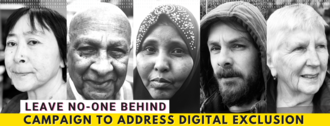.png)
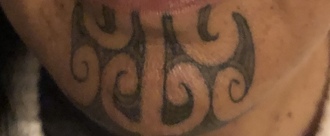
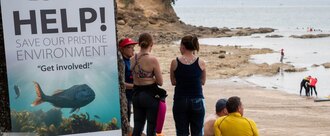


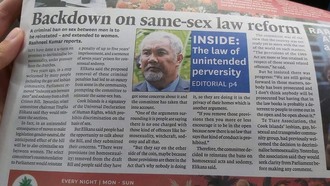

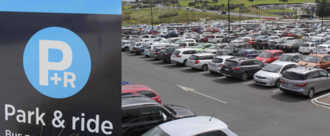

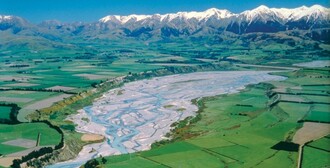
.jpg)
